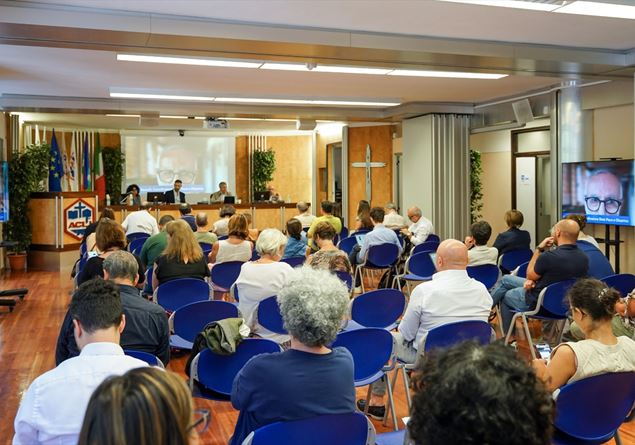It keeps a brain as young as they are 20 years old.
No organ escapes the passing time. A as we get older, our brain must provide more efforts for tasks formerly considered to be simple, as a conversation in a noisy restaurant or remember a name that escapes us. A certain cognitive “wear” is expected with advanced age. To maintain our brain and delay the cognitive decline, several activities such as reading, crosswords, board games or having a rich social life are recommended. Another leisure activity, less practiced by the elderly, would however be very effective in keeping a young and efficient brain, suggest Chinese and Canadian researchers in a joint study published in the journal Plos Biology.
To determine the most complete activity for the brain, scientists have followed three groups of people: young adults aged 23, 66 -year -old seniors and a third group of 65 -year -old seniors practicing stimulating brain activity. The experience was simple: “In the irmf scanner (Functional MRI, Editor’s note)the participants listened to the vocal signals and identified the syllables “ describe the researchers. In other words, the participants were placed in an MRI and had to identify syllables voluntarily masked by a sound hubbub. The team was able to observe live how the brains of different adults worked to take up the challenge.
It was the third group that obtained better results. And it is no coincidence because the researchers noticed that these people had been practicing music for several decades (piano, song, violin …). During the experience, the brain of elderly musicians carried out the task without difficulty: it worked calmly, without spending too much energy, and was therefore much more effective. “Elderly musicians had a connectivity scheme (…) similar to that of young people (people) non -musicians”. Clearly, their brain circuits had remained as efficient as those of the youngest. And this efficiency pays: the less their forced brain, the better their results. Conversely, the brain of non-musician seniors passed into “surregime”: it over-solled all its resources, a bit like an overheating engine.
The practice of music would therefore be one of the most complete activities for the brain. It requests both hearing, sight, fine coordination of movements and emotions. This complete training forges what scientists call a solid “cognitive reserve”, a capital that protects from the effects of time. It is therefore not too late to start the practice of music, or any other stimulating activity for your brain. A stimulated brain is a brain that remains young longer.







